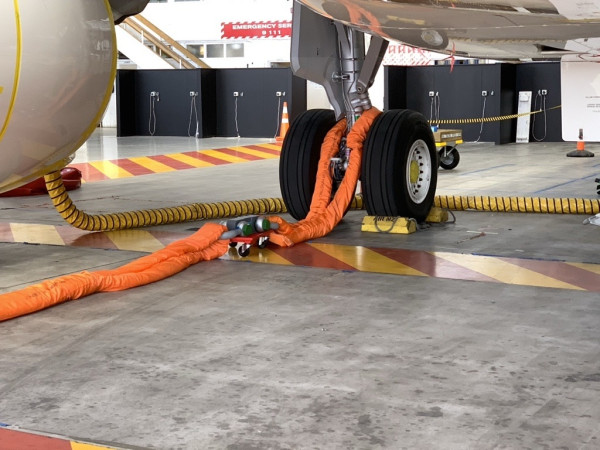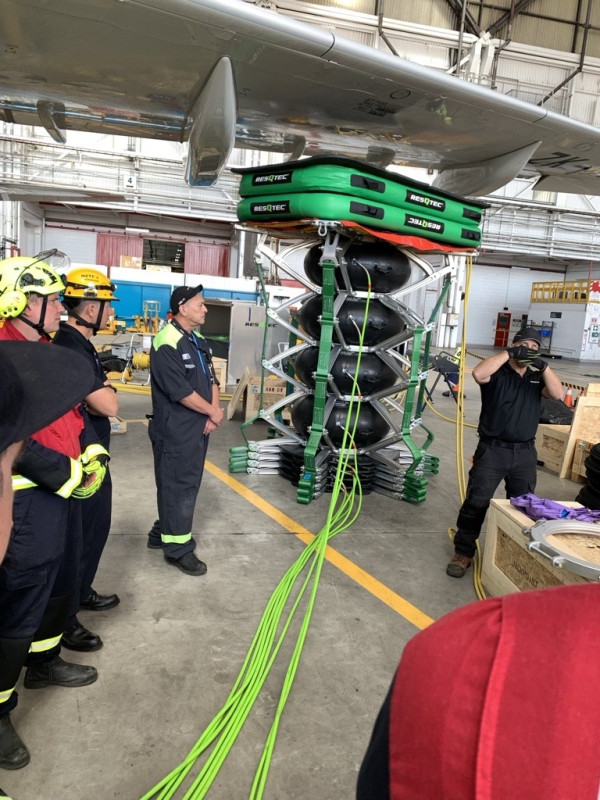Our USAR team checks out new equipment for recovering disabled aircraft
Four members of our Urban Search And Rescue (USAR) team (Phil Grace, Brad Harvey, Tiger McLeary, Chris Lind) were invited to Auckland Airport by our partners at Auckland Airport Emergency Service recently to familiarise themselves with some new equipment for recovering disabled aircraft.
USAR National Operations Manager, Chris Lind, said the equipment is for the Disabled Aircraft Recovery Team (DART) and is used to remove an aircraft that is immobile, for example where it has become stuck through being bogged on soft ground i.e., off-tarmac, or with flat tyres or similar.
‘The equipment cache is the only one in the southern hemisphere and cost around $9 million. It consists of 12 aircraft unit load devices (ULDs) which are fuselage shaped containers normally used for cargo. These enable the cache to be easily air transported throughout the Pacific.
‘There is a range of high and low pressure airbag systems with special frames to provide stability which are designed to be able to lift an aircraft up to the size of an Airbus A380. Alongside these a large set of 65-tonne recovery strops known as the de-bogging kit were set up which help pull an aircraft back to a hard-stand (tarmac) surface.’
Chris said the team took part in a number of scenarios being conducted as part of the equipment’s introduction. All training took place under the watchful eye of the Canadian lead instructor and a team of aircraft engineers to ensure the nuances of different aircraft could be explained.
‘The purpose of the session was not only to understand the new equipment and what assisting with an aircraft scenario might involve, but more specifically, how the equipment might be able to be deployed to support a USAR scenario.
‘An example would be where a building has partially collapsed, and a corner of the building might need to be stabilised to prevent it collapsing further whilst rescues are effected. The 11-metre maximum lift height offers considerable advantages over equipment currently held in the USAR caches.’




